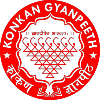PROGRAM EDUCATIONAL OBJECTIVES (PEOs)
- To educate students about communications and soft skills, leadership and entrepreneurship qualities for their career development.
- To apply technical expertise and principles of mathematics, science and Mechanical Engineering to design mechanical systems and applications in industries.
- To cultivate the ability among the students to work on versatile teams as individual and team member while dealing with lives problems.
- To prepare the students to use modern tools effectively in order to develop solution for practical applications and product design.
- To demonstrate a sense of moral and ethical standards in professional career and lifelong learning.
PROGRAM SPECIFIC OUTCOMES (PSOs)
At the end of graduation program, learner will be able:
- To design components, systems or processes that meet the specific needs and thereby develop solutions for complex engineering problems.
- To apply fundamental knowledge for design and development of Thermal, Hydraulic, Pneumatic, Mechatronics, Manufacturing Systems and associated processes.
- To put in the professional skills of modeling and simulation for analysis of real life components and systems.
Program Outcomes (POS)
Engineering graduates will be able to:
- Engineering knowledge: Apply the knowledge of mathematics, science, engineering fundamentals and an engineering specialization to the solution of complex engineering problems.
- Problem analysis: Identify, formulate, review research literature and analyze complex engineering problems reaching substantiated conclusions, using first principles of mathematics, natural sciences, and engineering sciences.
- Design/development of solutions: Design solutions for complex engineering problems and design system components or processes that meet the specified needs with appropriate consideration for the public health and safety and the cultural, societal and environmental considerations.
- Conduct investigations of complex problems: Use research-based knowledge and research methods including design of experiments, analysis and interpretation of data and synthesis of the information to provide valid conclusions.
- Modern tool usage: Create, select, and apply appropriate techniques, resources, and modern engineering and IT tools including prediction and modelling to complex engineering activities with an understanding of the limitations.
- The engineer and society: Apply reasoning informed by the contextual knowledge to assess societal, health, safety, legal and cultural issues and the consequent responsibilities relevant to the professional engineering practice.
- Environment and sustainability: Understand the impact of the professional engineering solutions in societal and environmental contexts, and demonstrate the knowledge of and need for sustainable development.
- Ethics: Apply ethical principles and commit to professional ethics and responsibilities and norms of the engineering practice.
- Individual and team work: Function effectively as an individual and as a member or leader in diverse teams, and in multidisciplinary settings.
- Communication: Communicate effectively on complex engineering activities with the engineering community and with society at large such as, being able to comprehend and write effective reports and design documentation, make effective presentations and give and receive clear instructions.
- Project management and finance: Demonstrate knowledge and understanding of the engineering and management principles and apply these to one’s own work, as a member and leader in a team, to manage projects and in multidisciplinary environments.
- Life-long learning: Recognize the need for, and have the preparation and ability to engage in independent and life-long learning in the broadest context of technological change.
